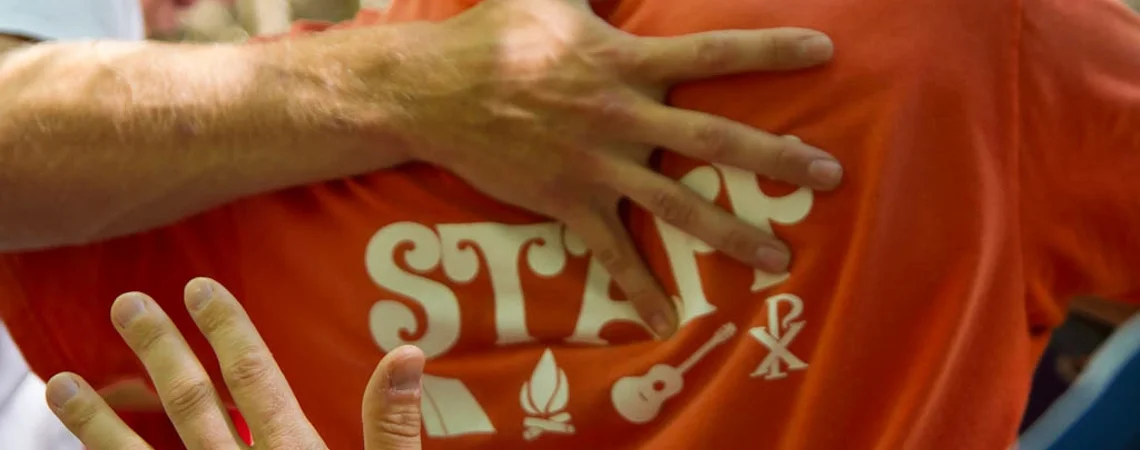Becoming a role model
I have to say that yes, if I didn’t go to camp, I’m sure I would have found other ways to learn about the various topics in my “If I Didn’t Go To Camp” posts. However, I will acknowledge that because I did go to camp, it was the first place I learned many of these lessons and my camp experiences helped me accelerate my growth in many areas of leadership.
One area is being a role model. Becoming a role model doesn’t only happen once you join staff. Oh no, it happens much before. When you’re a camper, you influence campers who are younger than you. Maybe it’s your perfect swish from the foul line on the basketball court that grabs an interested camper’s attention. Maybe it’s your bulls-eye count on the Bob’s Bullseye tracking sheet at the Trip Hut. Whatever it might be, you lead before you’re in a leadership role.
On the first night of each camp session after the opening campfire, the campers would be sent to begin their bedtime routine. The camp director asked the oldest boys and oldest girls cabins to stay back though. In her three minute speech, the director empowered the oldest cabin groups to be leaders and role models. She asked these campers to lend a hand to the younger campers, especially when they needed help. Maybe it was helping to lift a canoe or kayak back onto its rack, maybe it was to walk with them to the dining hall and make conversation, or maybe it was to cheer them up when they could sense a camper was homesick.
When you do join staff, your role modeling continues. The campers follow your lead. You are the coolest person they know. What I thought role modeling was at first, was setting a good example for my campers. What I learned later on though, was how powerful I was as a leader, and the way I found out was one I never could have predicted.
In an earlier post (Things I Wouldn’t Know If I Didn’t Go To Camp: Part 1) I talked about the role of night nurse at Camp Huronda. When the camp sessions changed over, the two counsellors who were selected to become the night nurses would need to reverse their daily pattern to become nocturnal. This included staying up all night during “changeover” (the night between sessions with no campers on site) and going to bed around 8am the next day, or as late as the counsellor could stay awake.
There are three small cabins tucked away behind the trip hut field where area staff and night nurses usually reside. These were my absolute FAVOURITE cabins. One afternoon, I was sound asleep after a full night awake when I was awoken by banging on the door to my little cabin. I heard someone yelling outside “Gilby, Gilby, Gilby!” I was aware of what was going on and said “come in”. I had a feeling I knew who it was, even from my subconscious awakening.
It was my previous camper Adam! As soon as he got to camp, he asked if I had returned and he found out where I was so he could come say hello immediately. WOW. I will never forget that moment. I realized then that I truly had become a role model for Adam. I too was very happy that he came back to camp. So, I gave him a hug, and told him we could catch up at dinner because I would sit with his table.
I went back to sleep until my alarm went off at 5:00pm knowing it was going to be a great two weeks. It was quite a humbling feeling having a camper so excitedly return to camp looking for me. I learned this lesson many times, but I think this was one of the most memorable ones. I had the pleasure of working on staff with Adam a couple years later when he joined staff as a counsellor in training and could be the leader to others that I was to him.




